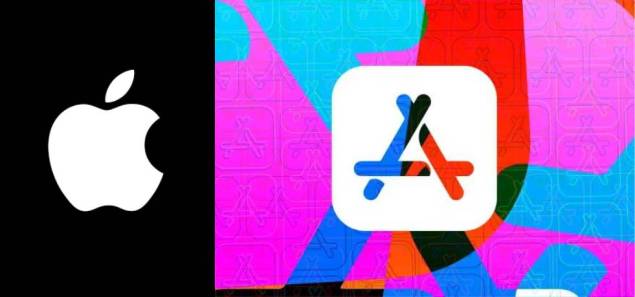Apple said almost a week ago that the European Union’s Digital Markets Act (DMA) rules require big changes to the App Store. The company also said that the market brings in 7% of its total App Store sales.
If developers choose to use different methods, the company’s CFO, Luca Maestri, said that these changes will have an effect on the company’s finances.
“The decisions that are made will have a big impact. To put things in perspective, the changes only affected the EU market, which makes up about 7% of our total app store income, he told an analyst.
Because of DMA, Apple has to let apps use third-party payment processors and other app stores. If an app gets more than a million downloads a year across all app stores, the company wants to charge a core tech fee.
Even with all of these changes, Apple reported a record quarter for App Store sales. The company made $23.1 billion in services sales, which is 11% more than the previous year.
Apple kept up its defense of the App Store and its community of paid apps by saying that it offers the best privacy and security. CEO Tim Cook made it clear that these changes will mean that the company won’t be able to give people the best experience possible.
It’s clear that privacy, protection, and ease of use have been very important to us over the years. “We’ve done our best to get as close as possible to the past in terms of the things that people love about our ecosystem, but we will not be able to provide the maximum amount that we could because we have to follow the rules,” he said.
Apple also had to open up the browser environment in the EU by letting other browsers use their own engine instead of WebKit. After iOS 17.4 users restart their iPhones, the company will show a splash screen where they can choose which browser to use by default.
It looks like Apple is looking into more ways to make more money from the App Store. The company will let streaming game shops for cloud gaming services be sold all over the world through the App Store. It is also adding support for in-app purchases in mini-games, mini-apps, plug-ins, and chatbots. For example, Netflix might be able to sell mini-games right through the app. OpenAI can also have a way for people to subscribe to paid GPTs.
The business world has been very critical of Apple’s moves. “Extortion” is what Spotify called Apple’s DMA plan, while the CEO of Epic Games called it “malicious compliance” full of “junk fees.” During Meta’s earnings call on Thursday, Mark Zuckerberg, CEO, agreed with others who said Apple’s DMA rules were “so onerous” that he wouldn’t be surprised if developers chose to follow them. According to The Verge, a number of coders have said that they will have to pay a large fee if they agree to the new terms.
Epic Games, Spotify, Tile, Basecamp, and Deezer are among the companies that belong to the Coalition for App Fairness. They called Apple’s moves a “non-compliance plan.”
Also Read: The First Day of Apple Vision Pro
“It is clear that Apple has no plans to follow the DMA. It is against the law for Apple to add new fees to direct downloads and payments that they don’t handle. The DMA wants to make the digital market more competitive and fair. This plan doesn’t do that because it’s not fair, reasonable, or nondiscriminatory, said Rick VanMeter, executive director of CAF.
What do you say about this story? Visit Parhlo World For more.


